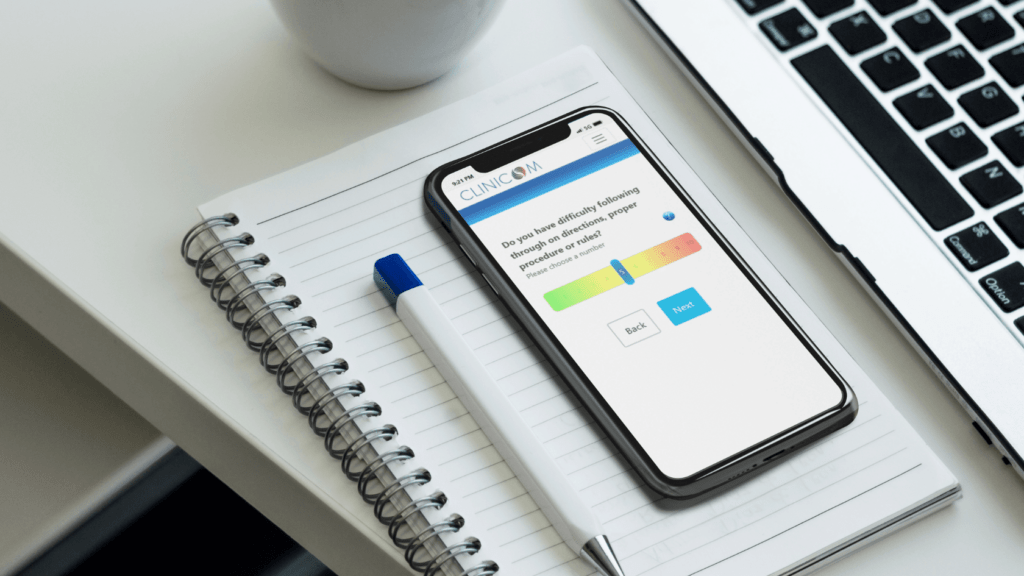
The demand for home-based care solutions is growing as healthcare providers seek to offer flexible, efficient, and accessible care models. With advancements in technology, particularly in remote monitoring and digital health solutions, it is now possible to deliver quality care directly to patients’ homes. This shift is especially crucial for managing chronic conditions and supporting individuals recovering from mental health crises. This post explores how home-based care is evolving with technology, the benefits of remote monitoring, and how Clinicom’s augmented intelligence supports this approach by enabling real-time assessment and personalized care outside traditional clinical environments.
The Shift Toward Home-Based Care
Home-based care has become increasingly viable due to technological advancements that allow for continuous monitoring and real-time intervention without requiring patients to visit clinical settings. This model is particularly beneficial for individuals with chronic conditions, such as diabetes, cardiovascular issues, or long-term mental health challenges, who require ongoing monitoring and support. By using remote monitoring tools and digital health platforms, providers can maintain a close connection with patients, ensuring that care remains consistent and responsive.
The COVID-19 pandemic accelerated the adoption of home-based care solutions, demonstrating that remote monitoring can be both effective and scalable. With the right technology, clinicians can track patient progress, adjust treatment plans as needed, and intervene promptly when symptoms change—all while reducing the strain on traditional healthcare facilities.
Benefits of Home-Based Remote Monitoring
The integration of remote monitoring into home-based care models offers several significant benefits for both patients and healthcare providers:
Continuous and Personalized Monitoring
Remote monitoring allows healthcare providers to maintain continuous oversight of a patient’s condition, which is critical for those managing chronic illnesses or recovering from acute mental health episodes. By tracking vital signs, behavioral patterns, or other health indicators remotely, clinicians can gain a comprehensive view of the patient’s health over time. This continuous data stream enables the personalization of care plans, ensuring that they evolve alongside the patient’s needs.
Increased Accessibility and Convenience
Home-based care eliminates barriers such as transportation, mobility issues, and geographical limitations that often hinder access to traditional care settings. Patients can receive the support they need in the comfort of their own homes, making it easier to adhere to treatment plans and stay engaged in their health management. This convenience is especially beneficial for those living in rural areas or for individuals with mobility challenges, ensuring that quality care is available to all.
Early Intervention and Crisis Prevention
One of the most impactful aspects of remote monitoring is the ability to detect changes in a patient’s condition early. For individuals with mental health conditions, timely intervention is critical in preventing crises. Remote monitoring tools can alert clinicians to potential issues, such as shifts in mood, behavior changes, or physiological markers that indicate distress. This early warning system allows for quick action, reducing the risk of hospitalizations or severe episodes.
How Clinicom Supports Home-Based Care Through Augmented Intelligence
Clinicom is at the forefront of integrating augmented intelligence into home-based care models, providing tools that enhance monitoring and assessment capabilities outside of clinical settings. The platform’s AI-driven assessment tools are designed to be used in a home environment, enabling clinicians to track patient progress and adjust care plans in real-time, ensuring continuity and quality of care.
Real-Time Remote Assessments
Clinicom offers a comprehensive platform that can be used to conduct remote assessments and monitor patient conditions from afar. The platform’s adaptive technology autonomously evaluates a wide range of conditions based on DSM criteria, capturing critical information about the patient’s mental health status. This real-time data is then transmitted securely to clinicians, who can interpret the results and make informed decisions regarding treatment adjustments.
By using Clinicom in home-based care, providers can stay connected with their patients without the need for frequent in-person visits. The platform’s flexibility allows for assessments to be conducted via telehealth or mobile devices, ensuring that patients remain engaged with their care plans and that clinicians receive accurate, up-to-date information.
Dynamic and Personalized Care Adjustments
The ability to adapt care plans dynamically is one of the key advantages of Clinicom in a home-based care setting. The platform continuously collects and analyzes data, allowing clinicians to adjust treatment strategies based on real-time insights. For instance, if a patient shows signs of increased stress or symptom exacerbation, Clinicom can alert the provider, prompting a timely intervention that might include adjusting medication, scheduling an additional telehealth session, or providing additional coping resources.
This personalized approach ensures that care remains effective and responsive, significantly improving outcomes for patients managing long-term conditions or recovering from mental health crises. By having a tool like Clinicom that bridges the gap between traditional and home-based care, clinicians can provide high-quality support that adapts as patients progress.
Secure and Confidential Monitoring
Privacy and data security are crucial when managing health information, particularly in home-based care where remote monitoring is involved. Clinicom prioritizes patient confidentiality by ensuring its platform is fully compliant with HIPAA and GDPR standards. This level of encryption and security enables healthcare providers to offer home-based monitoring with confidence, knowing that patient data is protected throughout the care process.
The Future of Home-Based Care with Clinicom
The evolution of home-based care is a promising shift in healthcare, offering patients a flexible, accessible, and convenient way to manage their health. With platforms like Clinicom, clinicians have the tools needed to support this transition effectively, combining the convenience of remote monitoring with the power of augmented intelligence. By integrating Clinicom into home-based care models, providers can deliver continuous, personalized, and secure care that meets the needs of modern patients.
Summary
Home-based care, enhanced by digital and remote monitoring solutions, is transforming the way mental health and chronic conditions are managed. Clinicom supports this shift with its AI-driven assessment tools, providing real-time data and dynamic care adjustments that ensure continuity and quality of care. By integrating Clinicom into home-based care models, clinicians can offer personalized, flexible, and secure care that improves patient outcomes and accessibility.
